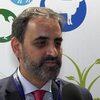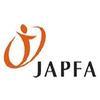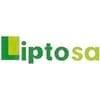
Content sponsored by:
LIPTOSA
The Avian Coccidiosis
Published: November 26, 2020
By: Carlos López, Export Area Manager at Liptosa
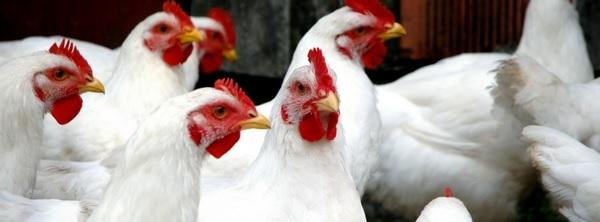
Is a parasitic disease caused by protozoan of the genus Eimeria, affecting virtually all domestic and wild poultry species.
The disease transmission is fecal-oral, by ingesting sporulated oocysts present in the litter, from faeces from infected birds, although a mechanical transmission is also possible through dust, utilities, workers' clothing...
The course of the disease (clinical/subclinical) and the pathogenicity of the parasite will be determined by several factors:
- Parasite related factors: Eimeria species involved and number of oocysts ingested. The penetration depth into the intestinal mucosa and the number of cycles of asexual reproduction performed will vary depending on the Eimeria specie
- Host related factors: Age, nutritional and immune status of the animal, concomitant infections, nutritional deficiencies...
- External factors: Poor ventilation, wet litters and stressful situations that may decrease the feed intake.
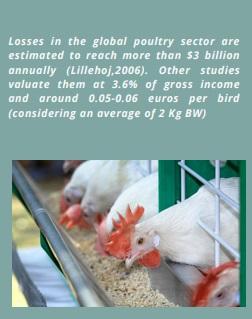 The acute form of the disease is characterized by haemorrhagic diarrhoea and high mortality rates. However, subclinical processes are much more common, difficult to diagnose and characterized by worse zootechnical parameters (feed conversion rates, growth rates, batch uniformity…).
The acute form of the disease is characterized by haemorrhagic diarrhoea and high mortality rates. However, subclinical processes are much more common, difficult to diagnose and characterized by worse zootechnical parameters (feed conversion rates, growth rates, batch uniformity…).But it should be emphasized that coccidiosis predisposes the birds to dysbacteriosis processes, increased leg problems and diseases such as necrotic enteritis (mucosal damage caused by Eimeria provides a favourable environment for Clostridium perfringens to proliferate) gangrenous dermatitis, spondylitis...
All this means coccidiosis is considered one of the infectious diseases with the greatest economic impact on the poultry industry, for the productive losses it causes and for the costs of prevention and/or treatment that it entails.
Treatment of Coccidiosis
For decades, the use of anticoccidials (ionophore antibiotics and/or chemical coccidiostats) in animal feed, and, more recently, the use of vaccines, either continuously or as part of rotational or shuttle programs, in order to avoid, or at least to delay the appearance of resistances, have been effective tools in the management of coccidiosis. All this without neglecting appropriate biosecurity measures, preventive medicine programs, correct nutrition… as well as the establishment of specific programs aimed to support gut health.
However, the great capacity of Eimeria species to develop drug resistances (which have been already demonstrated against the 11 coccidiostat products authorized in the EU), together with a constant legislative pressure about its use and an increased market demand for safer, free range and environmentally friendly products, lead to a new scenario in which the use of phytobiotics as a coccidiosis control tool plays an important role.
COCCILIP is the phytobiotic program developed by LIPTOSA for an efficient control of avian coccidiosis, incorporating formulas in both presentations: liquid, for its use through drinking water, and powder, for its use in the feed.
Both products, Coccilip L and Coccilip P are based on a synergistic combination of plant extracts, fatty acids and essential oils, subjected to a special protection system that allows a gradual release of their active compounds throughout the entire digestive tract. Its effectiveness is based on a triple mechanism of action:
- Activity against Eimeria
- Activity against Clostridium perfringens
- Gut integrity enhancer
The use of Coccilip P in the feed will provide an alternative to the chemical coccidiostats and ionophores, either replacing them completely or as an additional alternative in the rotation and shuttle programs, thus, reducing the risk of coccidia resistances.
On the other hand, the use of Coccilip L through drinking water is recommended to provide a fast response in case of coccidia outbreaks or as preventive in periods of higher risk (entrance to the laying house, change of feed…).
By lacking a withdrawal period, the use of Coccilip during the last phase of the cycle is recommended, to reduce the excretion of oocysts through the feces and the bedding infective pressure, facilitating therefore the disinfection works prior to the entry of the next batch of animals.
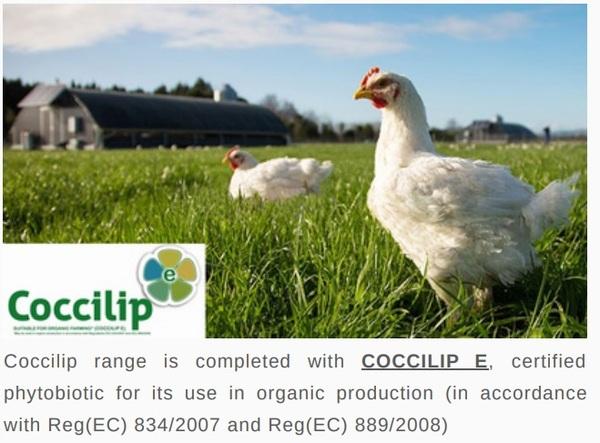
ADVANTAGES OF COCCILIP:
- NO resistances
- NO residues
- NO withdrawal period
- Control of Coccidia and C. perfringens
- Improves animal performance
- Compatible with conventional anticoccidial programs
Based on its well selected components and the synergies between them, COCCILIP represents a useful tool not only in the control of coccidiosis, but also in the control of necrotic enteritis, commonly related. Several studies have shown the effectiveness of Coccilip's active compounds against Clostridium perfringens, either directly or indirectly through an improvement in intestinal integrity, leading into improvements in the production rates.
*Certain information associated with products, their composition and claims may be different depending on the geographical region and may not be applicable in all countries. Liptosa reserves the right to adapt to the requirements and legislation in each case.
The information and technical recommendations provided herein are based on Liptosa's current knowledge and experience.
Liptosa reserves the right to update the information and arguments contained in this platform, as well as to make any changes to this information or recommendation at any time, without prior or subsequent notice.
Related topics:
Authors:

Recommend
Comment
Share

Would you like to discuss another topic? Create a new post to engage with experts in the community.
